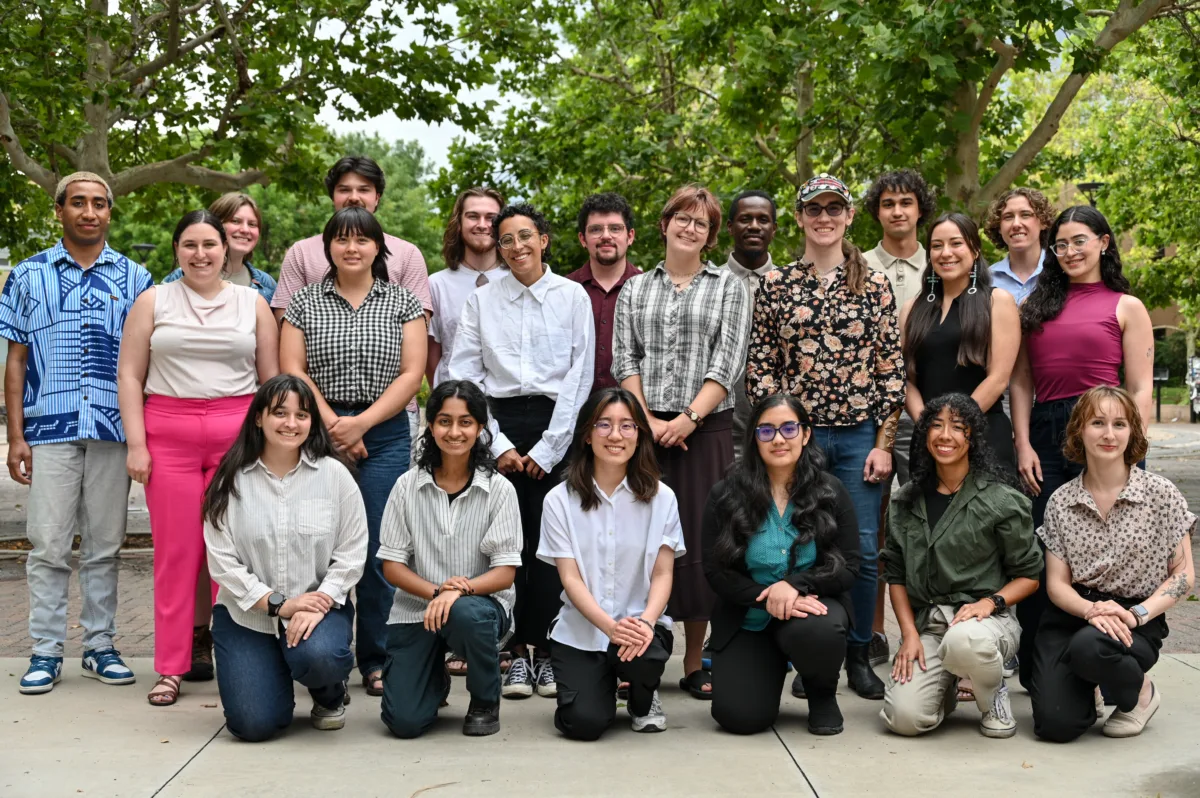
Each summer, EarthScope welcomes a new cohort of undergraduate and graduate students into immersive internships that bridge classroom learning with professional geoscience experiences. The RESESS, Geo-Launchpad, and Student Career Internship programs are designed to cultivate research skills, technical expertise, and professional growth while connecting students to a supportive community of mentors and peers. Summer 2025 marked one of the largest cohorts yet, with 31 interns placed at universities, research institutions, and national laboratories across the United States.
The 2025 internship season kicked off June 1–6 with RESESS and GeoLaunchpad interns gathering at the University of New Mexico in Albuquerque for orientation. The week blended introductions to EarthScope with field and technical training, community-building, and professional development. Interns visited the EarthScope’s Primary Instrumentation Center (EPIC) to learn about seismic and geodetic instrumentation, participated in an active-source seismic experiment led by Dr. Juan Lorenzo (Louisiana State University), and toured the New Mexico Bureau of Geology’s Mineral Museum with Education Outreach Manager Cynthia Connolly. Workshops introduced programming in Python, research ethics, and mentoring, while hikes and team-building activities strengthened connections across the cohort. The week balanced introductions to EarthScope with field and technical training that set the tone for the months ahead.
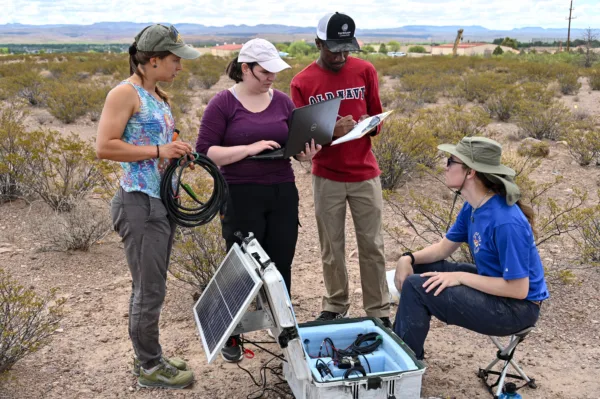
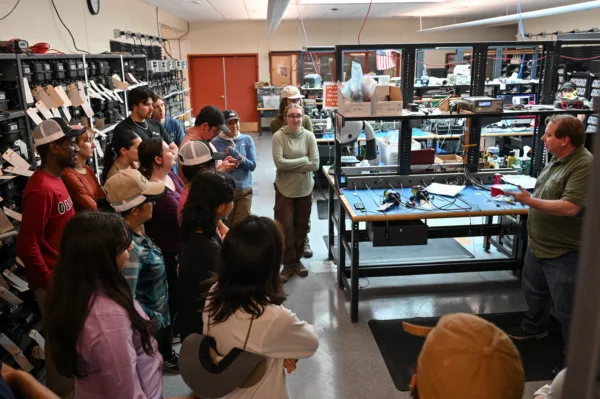
After orientation, interns dispersed to host sites nationwide to begin their projects. Each program provided a different entry point into the geosciences, but all shared the same goal: practical experiences in the geosciences, whether it be performing research for the first time or shadowing career professionals.
“At the beginning of the summer, the first few weeks were a lot of reading, getting myself familiar with the project. Now that I’m into the meat of the internship, I’m doing a lot of looking at graphs, creating plots, and making connections between different minerals. It feels really rewarding to move from background work into actually contributing something new.”
— Aurora Byrd, Geo-Launchpad intern.
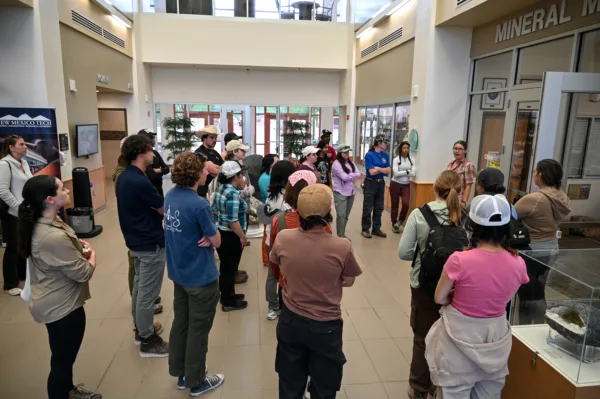
RESESS (Research Experience in Solid Earth Science for Students) placed undergraduate interns at research institutions and universities across the country, including Caltech, the University of Texas at Austin, and the USGS Cascades Volcano Observatory. The interns took on intensive projects in seismology, volcanology, tectonics, geodesy, and more. Multiple interns were able to participate in fieldwork hosted by their respective institutions where they were able to work on site with their mentors and other principal investigators (PIs) to gain practical expertise with geoscience tools and processes. Their projects spanned machine learning for earthquake detection, magnetometer analyses, tomography, and geophysical modeling. Many experienced the pace of active research: long code runs in high-performance computing queues, troubleshooting unexpected data issues, and presenting work-in-progress to lab groups. Rebecca Merber, a RESESS intern, reflected: “I did not have any machine learning experience at all. I’ve done a little bit of Python programming and some other languages, but I’m pretty much a beginner so this has all been very new to me. I would say that I have very supportive mentors here who have helped explain everything pretty well.”
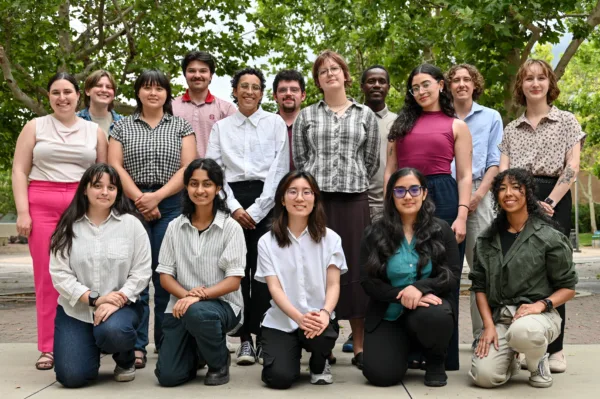
The Geo-Launchpad (GLP) program serves community college students, with the program being open for the first time to community college students anywhere in the U.S. this summer. The program helps students develop skills for careers and research. Hosted primarily at New Mexico Tech and nearby institutions, Geo-Launchpad interns gained exposure to geoscience instrumentation, including hands-on experiences at the EPIC. Their projects focused on developing technical and professional skills through applied research, data analysis, and earth science communication. Working closely with mentors, they built confidence in coding, data visualization, and presentation while gaining a clearer sense of what careers in geoscience can look like.
“This EarthScope internship is my first undergraduate research opportunity, so I’ve been learning quite a bit. I was assigned a mentor, and we’re working on hydrologic research, looking at how large scale climate drivers impact stream flow patterns. It’s also my first time coding. I’m a remote intern, so I’ve been using Python to do the analysis. It’s been a challenge, but I’m learning quite a bit about hydrology and how climate can impact water resources.”
— Sara Gasca, Geo-Launchpad intern.
EarthScope Student Career Interns, undergraduate and graduate students, had the opportunity to contribute to EarthScope in a variety of professional contexts. Career interns worked directly with EarthScope staff members and were placed in roles spanning instrumentation support, seismic data evaluation, project management, science communication, and more. Some focused on technical work, such as analyzing seismic data or supporting distributed acoustic sensing (DAS) projects, while others contributed to organizational coordination and logistics through project management assignments. As Conner Knorr, a Student Career Intern in the Project Management Office, put it: “I really enjoy seeing the more organizational side of science … I also really enjoy checklists, organizing, spreadsheets … so it’s really nice to see kind of the opposite side, more of the business side of the science.”
Science Communication interns created videos, graphics, and outreach materials that translated complex geoscience into accessible stories for public audiences. Collectively, the Career Interns demonstrated that valuable contributions to EarthScope come not only from field and laboratory research but also from the communication, coordination, and operational work that sustains the organization.
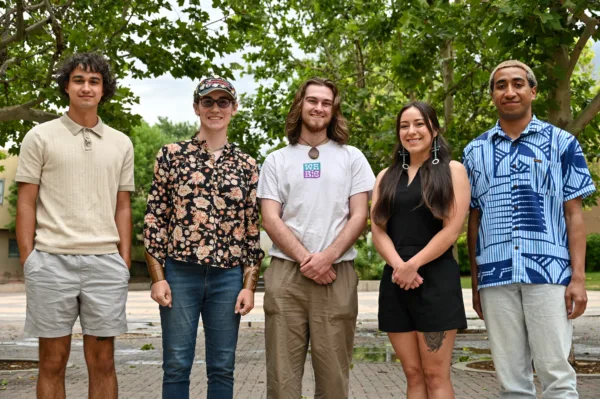
Beyond research, the internship programs emphasized skills that prepare students for long-term success. Weekly professional development sessions tackled topics like graduate school pathways, navigating scientific careers, and effective communication. Writing workshops, led by experienced mentors, guided interns through drafting research prospectuses, abstracts, and posters. These sessions helped transform raw results into polished products ready to present at conferences. By mid-summer, students were sharing drafts with peers and practicing presentations, building confidence for conferences ahead.
“I like that I’m finally getting my hands onto actual research. A lot of my project is coding with Python … Other terminals and stuff that I am not used to … I have had zero experience with coding prior. So it’s really cool to learn that stuff in this light of something I’m really interested in.”
—Dylan Bond, Geo-Launchpad intern.
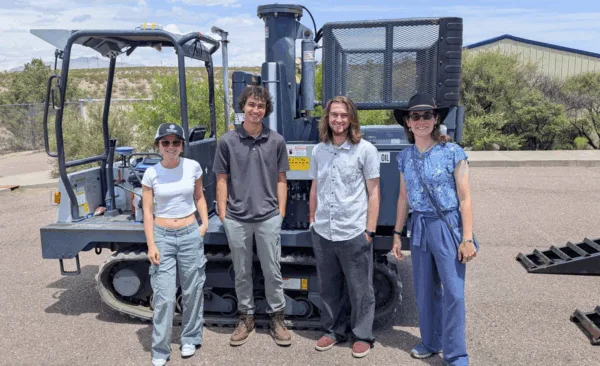
By the close of the program, interns had produced deliverables that will travel far beyond EarthScope. RESESS students prepared abstracts and posters for the American Geophysical Union (AGU) meeting in New Orleans, LA this December, while Geo-Launchpad interns submitted abstracts to the Geological Society of America (GSA) meeting in San Antonio, TX this October, taking their first steps onto a national stage. Other interns completed technical documentation, educational resources, or communication products that will continue to support the consortium’s work.
The experience also opened doors. Geo-Launchpad intern Sara Gasca was selected for a paid NASA LEAP internship as a Planetary Geologist Mentor, standing out as the only undergraduate science mentor in the cohort. RESESS intern James Genero authored an article for the U.S. Geological Survey’s Caldera Chronicles, sharing research on Cascade volcanoes with a national audience. These stories illustrate the long reach of a summer internship: how skills gained in a few months can shape opportunities for years to come. To learn more about the work undertaken by EarthScope interns this summer and their experiences, please visit the 2025 intern profiles.
Looking Ahead
The 2025 EarthScope internships gave students a chance not only to contribute to science, but to see themselves as scientists, communicators, and leaders. From first-year undergraduates preparing samples to advanced students submitting work to present at conferences, the program created a continuum of opportunities that strengthens the future of geoscience.
EarthScope celebrates the accomplishments of this year’s interns and thanks the mentors, host institutions, and staff who made the summer possible.
Applications for the 2026 EarthScope internship programs will open this fall. Students interested in research, communication, or professional development in the geosciences are encouraged to apply. More information and deadlines can be found at earthscope.org/education/student-internships.

